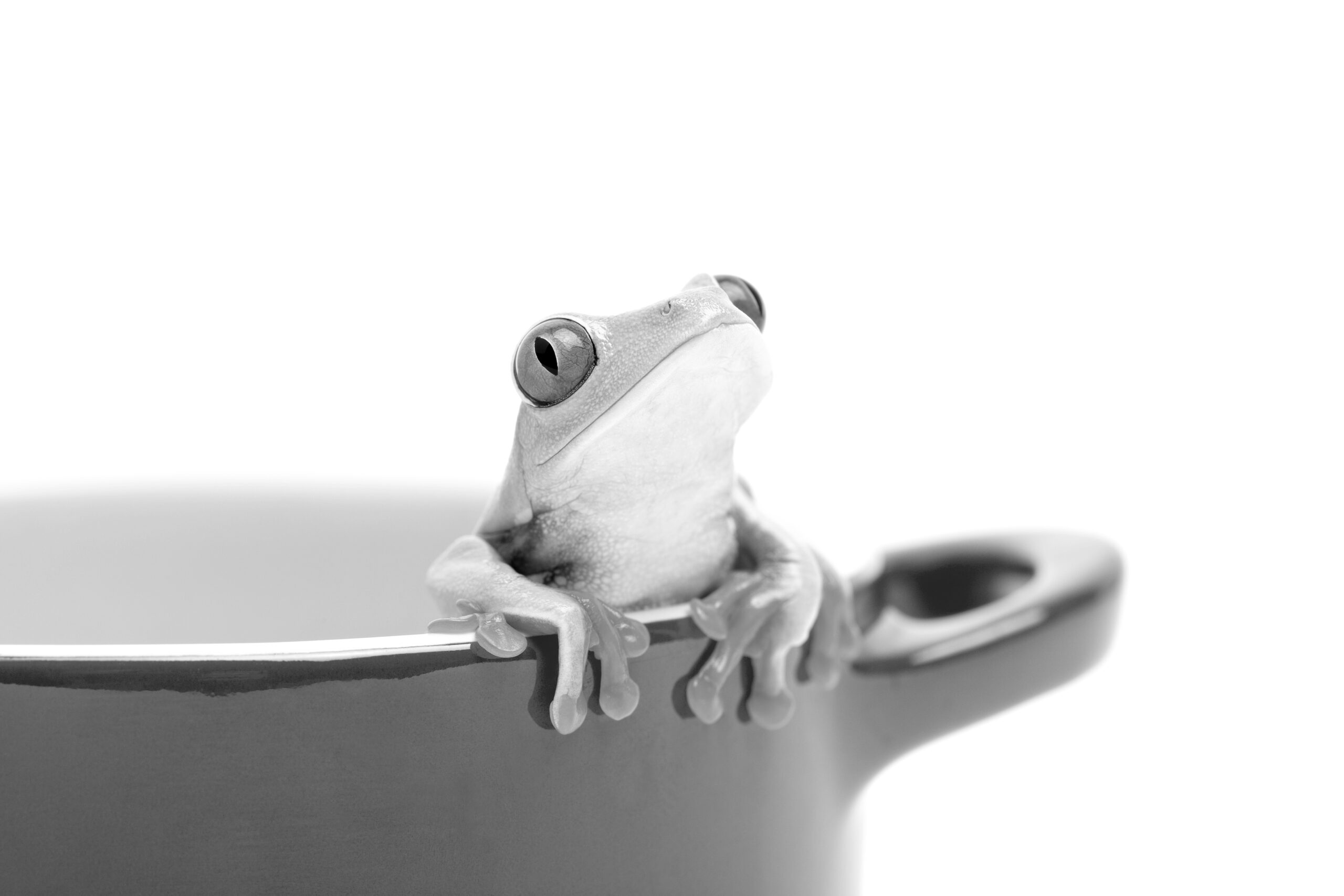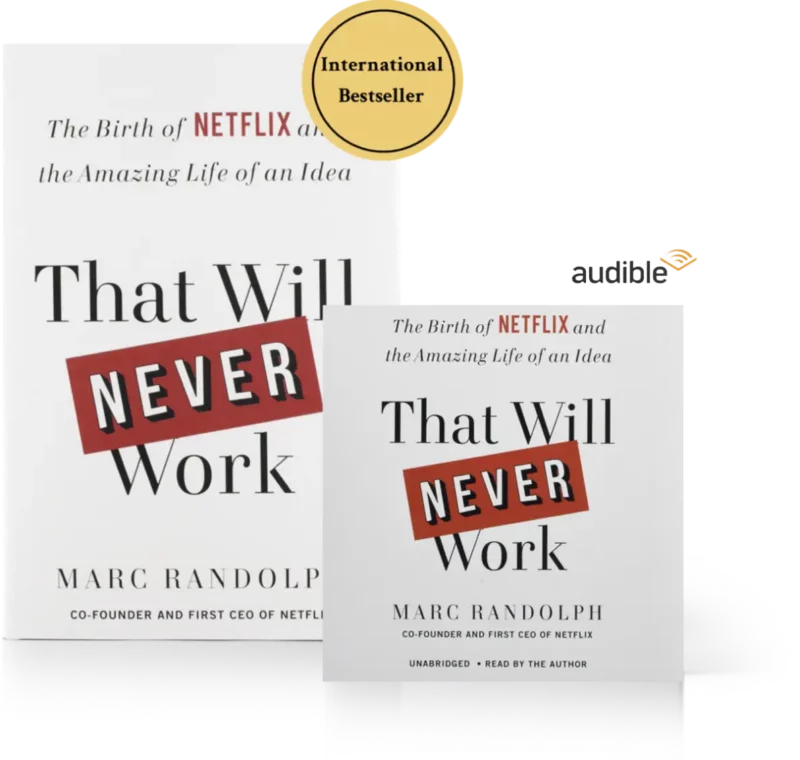My 2021 Resolution: Don’t be a Frog.
In 2002, after six years thinking of little other than Netflix, I decided it was time to think a little differently. And so I left.

In 2002, after six years thinking of little other than Netflix, I decided it was time to think a little differently. And so I left.
The most wonderful byproduct of this was that I finally had time. Time to linger over coffee with my wife. Time to get outside and surf, run, or mountain bike every morning. Time to head into the Tetons for two weeks of back-country snowboarding.
There was time to engage with other startups, many of whom were looking for advice from someone freshly back from the war. It was easy to say yes to every invitation to talk, to have coffee, or to sit on an advisory board.
Then the non-profit community came calling, and before I knew it was on a couple more boards.
My name got out there, and I accepted speaking invitations. I began doing media. I started writing.
Soon, I needed a desk at a co-working space to give me a place to focus. Monthly day trips to the city turned into weekly overnights. I started having to schedule time to go surfing. I was spending more time at a desk than I was on a saddle.
It had taken four years, and the water had warmed so gradually that I hadn’t even noticed it, but the result was inescapable: I was getting boiled to death.
I decided it was time to think differently. So I moved to Rome.
In an instant, my life was back to where it had been four years earlier.
My wife and I could spend the morning at our cafe drinking coffee and watching the neighborhood come to life. I had time to run and bike again. (The surfing in Rome? Not so good. I guess you can’t have everything). I learned to speak Italian and ate long Italian lunches. We learned, explored, studied, and walked.
Occasionally I reflected on what had happened to me. How had I gotten trapped in a life I didn’t want? Everything I had said yes to was either fun, interesting, or deserving. What went wrong?
When it comes to choices, the trick isn’t figuring out good from bad. The real trick is differentiating between good, better and best. Only then can you be sure you are spending your time on the things that are truly important.
To make sure I was focused on the right things, I wrote a business plan for myself.
I took stock of what I wanted from the next phase of my life. I decided what I wanted to accomplish. I designed a life that I thought could make it happen. And when we got back to the States the following year, I put it into practice.
It didn’t work perfectly at first, but that was fine. It was a 1.0 product. But I kept tweaking. I changed things, added, subtracted. I’m on version 3.2 now and about to launch version 4.0. It’s taken a while, but I’ve built a life that more-or-less works – with intellectual challenge, outdoor time, and family connection, all in balance.
Making fundamental changes requires two things: the time and space to think clearly about what you want, and a plan to make it happen.
I’m pretty disciplined now about checking the temperature in the pot. Each month I look back and ask myself how I did: was I intellectually engaged? Was I getting out to ride; to surf; to climb? Was I spending quality time with my wife, my family, my friends?
I will admit that life sometimes gets away from me. For example, my book (That Will Never Work) was like cooking over one of those propane burners they use for deep frying turkeys — it’s almost impossible to regulate the temperature of the pot.
The long flights to South America and Australia that used to be full day happy hours for me and my wife, now had me whipping out the laptop before the warm nuts arrived. The book tour was an “If-it’s-Tuesday-this-must-be-Kansas-City” style of travel that I had sworn off years before. I was living from a suitcase, exercising in my hotel room, and doing pre-dawn runs in indistinguishable cities. And what were my kids’ names again?
Suddenly I realized it was happening! I was getting boiled again.
And then came Covid. As I described a few weeks ago, that was the great reset. Suddenly the calendar was clear. Travel was cancelled. The publicity tour cut short. I got my life back.
It was a gift, no different than what had happened to me when I moved to Rome. It gave me time to plan. Time to think about whether the things I was spending time on were really what I wanted to spend time on. To be thoughtful about what I agreed to. It was a time to, as Marc Andreesen puts it, “figure out the threshold for yes versus no”.
As we start a new year (and a new decade) with the ink still wet on our to do lists, I’m thankful that Covid showed me three important things: just how out of balance I had let my life become in 2019; what it was that I gained back in 2020, and what I was committed to maintaining in 2021.
Like most people, I make New Year’s resolutions, but I no longer aim for clear commitments with measurable goals. For me, those don’t work for the exact same reasons I discourage startups from writing business plans – because things change. Instead, for each coming year, I set themes, with general objectives rather than specific goals.
You’ll see some of my 2021 themes take shape over the coming year (more consistent writing for example, and a major new project I’m announcing soon), but my most important theme will be largely personal: it’s to make sure I realize how easily the most important things, like balance, health, family, and meaning, can slip away if they are not carefully guarded.
I won’t let that pot overheat again.
RECOMMENDED FOR YOU
Congratulations on Landing Your First Job...
Podcast Episode 72
Is it a Culture Problem or a Hiring Problem?
October 25, 2022 • 38 min
